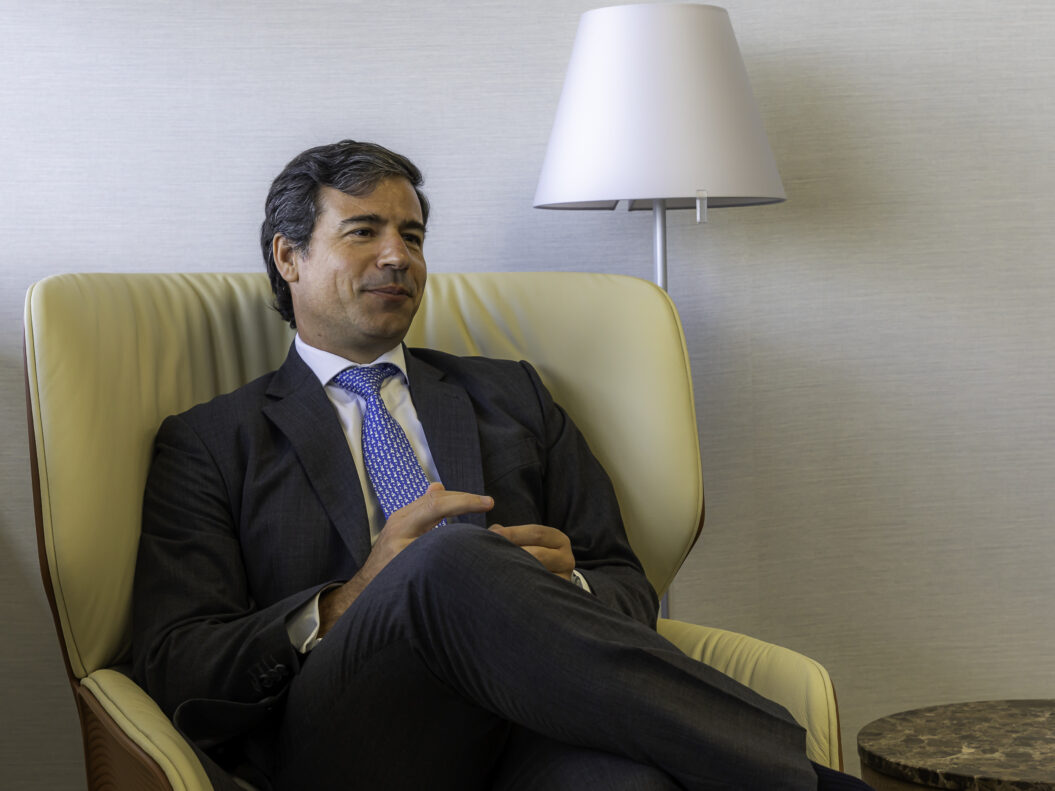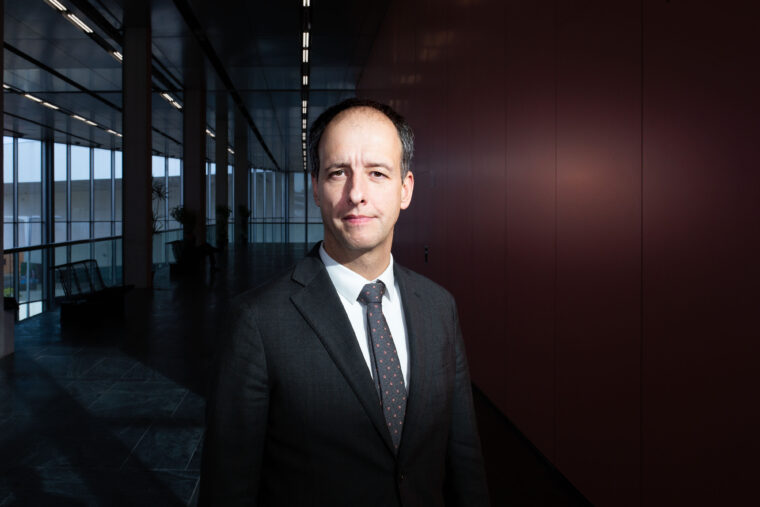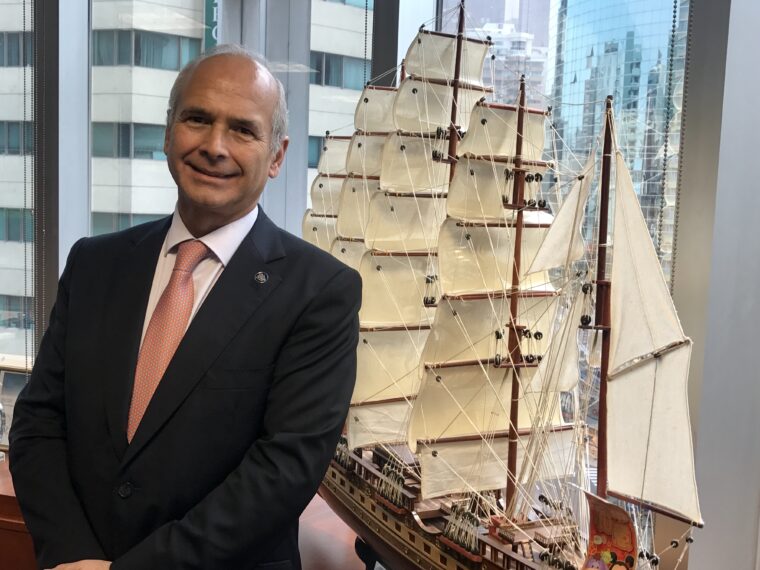Portuguese people who stand out abroad are helping to find out where business opportunities are and what kind of companies and activities the country can attract. An initiative that brings together Negócios and the Portuguese Diaspora Council.
1- What led you to leave Portugal?
In fact, I have already left Portugal twice. The first time I went out of curiosity. Curiosity to learn about other markets, curiosity to test my ability to adapt, curiosity about other work cultures and curiosity to get to know the world.
The second, in a more consolidated phase of my career, was the challenge of working in larger or more complex markets and opening up growth options for my career. Basically, I went looking for an opportunity to expand the range of choices and opportunities in my career.
2- What advantages or disadvantages does being Portuguese bring you?
Our ability to adapt to other cultures and learn other languages are undoubtedly great advantages. Our DNA has specific characteristics that help us arrive at a completely different culture and adapt faster than other nationalities. Another advantage is the fact that the Portuguese language has a very wide variety of sounds, which allows us to learn other languages more easily. The combination of these two factors makes it easier for the Portuguese to adapt to new cultures. The biggest disadvantage is that, as Portugal is a smaller economy, it does not have the capacity and mechanisms to support investment abroad, as other countries do.
3- What obstacles did you have to overcome and how did you do it?
The biggest obstacle is always adapting our work culture to the local reality. Naturally, there are leadership characteristics that are common throughout the world, but one of the keys to success when we leave our country is understanding the nuances of each market, how to communicate effectively and what motivates people. In each country I have lived in, there has clearly been a process of unlearning the work culture of the last country and re-learning the culture of the new one, in order to practice more effective leadership. It’s curious that even today I do certain things in a certain way because that’s how I learned in Portugal, others because they worked well in Spain, or I apply the rigor required in the United Kingdom, but always with the notion of their impact on the culture of the country where I am.
Despite this process, I am an inevitable product of all the professional experiences I have had the privilege of living, and they all contribute in some way to a more effective adaptation to each job market. And at the end of the day, it is the set of these experiences that allowed me to overcome the biggest obstacle, which is justifying why a Portuguese person for a certain role or why me.
4- What do you admire most about the country where you are?
What I admire most about Mozambique is the people’s resilience and good disposition. These two characteristics combined lead to entrepreneurship and innovation. When we talk about Mozambique the first thing that comes to mind is one of the poorest countries in the world in the southeastern part of Africa. A small economy with little interest. In fact, it is a country of more than 30 million people, with more than 60% of the population under 25 years of age and still with a high percentage of the informal economy. These characteristics, combined with extreme weather events, require the country and its People to have the capacity to resist negative events and extraordinary innovation.
5- What do you most admire about the company or organization where you work?
What I admire most about the Standard Bank Group is its ability to understand Africa and bring Africa to the world. Standard Bank is the largest African bank, with a presence in 20 countries in Africa and 5 representations in various parts of the world. Our vocation is to serve our customers in each of these geographies, attract investment to the African continent and expand the base of trade partners. Understanding Africa means understanding that the continent is made up of 54 countries, each with its own identity, all different from each other in terms of economy, culture, geography and, simultaneously, being able to operate in environments of great volatility. The Standard Bank Group has been one of the largest investment channels in Africa in recent decades, and continues to expand its presence, to contribute to the development of the 54 countries on the African continent.
6- What recommendations would you give to Portugal and its entrepreneurs and managers?
In relation to Mozambique, the recommendations I would give to Portugal and its businesspeople is that they look at Mozambique not only as a current opportunity, but mainly as a long-term opportunity, for the next 10, 20, 30 years. In 2050, Europe will suffer a very serious demographic crisis, both in terms of lack of labor and in terms of demand. Our duty as managers is not only to prepare Portuguese companies for the short term, but also for the long term. In this sense, consider investing in markets such as Mozambique, which currently have low levels of demand and volumes, compared to more developed markets, but with enormous potential due to the combination of the population dividend and increased per capita income.
For these reasons, Mozambique should be an important and prominent country on the agenda of Portuguese businesspeople and managers.
7- In which sectors of the country where you live could Portuguese companies find customers?
The most interesting sectors for Portuguese companies would be the infrastructure, construction, consumer goods, energy, and agriculture sectors. Infrastructure and construction for the potential that Mozambique has to be the gateway to the sea for some African countries that need access to global markets. We are talking about roads, railway lines and ports with capacity for all imports and exports from countries such as Zimbabwe, Zambia and Botswana and South Africa itself. Additionally, there are good opportunities in areas such as distribution and the consumer goods industry, despite strong competition from South Africa. Finally, my favorite sector, the agricultural sector, offers unparalleled opportunities in various types of crops, from vegetables, cereals, fruits, nuts, and irrigated crops such as rice. The neighboring country, Zimbabwe, has been described as the breadbasket of Africa, and so I see no reason why Mozambique cannot also be a power, considering that the soil and climate are identical.
8- In which sectors in Portugal could companies from the country where you live want to invest?
Currently, one of Portugal’s most attractive points is its political and macroeconomic stability. For countries where this volatility is part of the DNA of businesspeople, it is important to have other options where to invest savings in order to manage risk. In this sense, the real estate sector continues to be a very attractive sector as it constitutes a store of value with little volatility.
9- What is the competitive advantage of the country you live in that could be replicated in Portugal?
The two great competitive advantages that Mozambique has can hardly be replicated. One is the existence of large reserves of natural resources ranging from natural gas, coal, heavy sands, precious stones, and graphite. These resources will be key to the country’s economic development. The second is the demographic pyramid and the percentage of young population that exists in Mozambique. This advantage, common to almost all African countries, will be felt in 20 or 30 years, but it will change the paradigm of economic growth and even international geopolitics.
10- Are you thinking of returning to Portugal? why?
The last time I left Portugal, to the United Kingdom, was to embrace new challenges and explore new career opportunities. In professional terms, Portugal always remains a great option, but the opportunities have to be challenging compared to what we have available globally. For a post-executive phase of life, Portugal is a very attractive destination due to its quality of life, climate, and geographical location. In conclusion, if there is no professional opportunity that justifies returning, I believe that sooner or later we will return to adopting Portugal as our family base.
Read the original article here.






